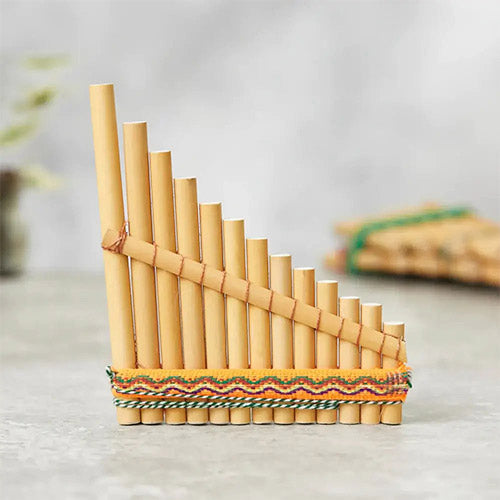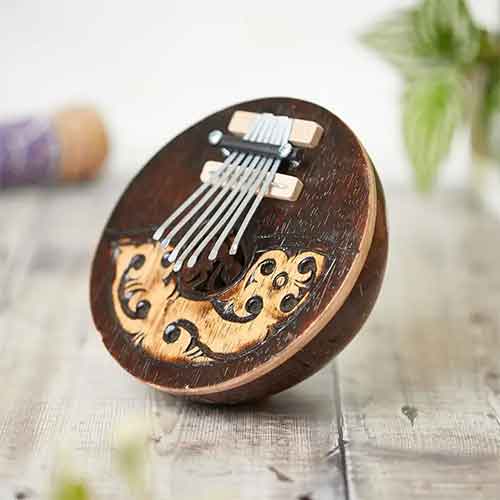The bagpipes, a traditional Scottish musical instrument, have a rich history and a distinctive sound that has captured the hearts of many. Whether you've always been fascinated by the melodic tunes or you're looking to join a marching band, learning to play the bagpipes can be a challenging yet fulfilling endeavour. We are going to take you through the process of getting started with the bagpipes, from finding a good instructor to choosing the right practice chanter and tutor books. So, let's dive in and embark on this musical journey.
The Importance of a Good Instructor
Learning to play the bagpipes is not something you can easily pick up on your own. It requires proper guidance and instruction from a knowledgeable teacher. While it's preferable to start learning as a child or teen, adults with patience, perseverance, and dedication can also excel. If you don't have a good instructor near you, don't worry. Many instructors offer online lessons, allowing you to learn from the comfort of your own home. Additionally, attending workshops and summer schools can provide valuable opportunities to enhance your skills and connect with other pipers.
Time Commitment: Practice Makes Perfect
To make progress and master the bagpipes, you must be prepared to dedicate a significant amount of time to practice. Aim for a minimum of 25 minutes of focused practice per day, at least five days a week. However, if you can devote an hour a day, six days a week, you'll see even more remarkable improvement. Remember, talent alone is not enough; consistent practice is crucial. Treat your practice sessions seriously and avoid distractions whilst playing, such as scrolling through your phone or watching television. The more you practice, the faster you will advance.
Getting Started: The Practice Chanter
Before you dive into playing the bagpipes themselves, you'll start your journey with a practice chanter. A practice chanter is a small oboe-like instrument that serves as a precursor to the complete set of bagpipes. It allows you to learn the fingerings and grace noting system required to play Highland bagpipe tunes. Practice chanters come in different materials, including polypenco (plastic) and wooden options. The choice between the two depends on your preference and budget.
Choosing a Practice Chanter
When selecting a practice chanter, you have several options to consider. Polypenco practice chanters are affordable and durable, making them ideal for beginners. They typically cost between $75 and $175. On the other hand, wooden practice chanters, often made from African Blackwood, offer a more vibrant sound. However, they come at a higher price, ranging from $175 to $400 and beyond for those with silver or engraved details. Beginners usually start with a regular-sized chanter, but there are also smaller chanters available for younger children.
Tutor Books: Your Guide to Learning
Alongside your practice sessions, it's essential to have a beginner tutor book. There are several excellent options available, each with its unique teaching approach. The College of Piping Tutor, or the "Green Book," is a popular choice, especially when learning with an instructor. First published in 1953, it has become the best-selling piping book worldwide. It offers online video demonstrations to assist with exercises and tunes. The Highland Bagpipe Tutor Book by The National Piping Centre is another valuable resource, particularly if you don't have regular access to an instructor. It includes a CD-ROM for additional learning support. Additionally, Rhythmic Fingerwork, a widely acclaimed instructional book, focuses on mastering the intricate grace noting required in Highland pipe tunes. While not a beginner tutor, it can be beneficial after a few months of practice.
Starting Your Bagpipe Journey
Now that you understand the key components needed to learn the bagpipes, it's time to take the first steps. To help you get started, we offer several starter packages that combine practice chanters, tutor books, and other essential items at a reduced price.
These packages cater to different preferences, whether you prefer a wood practice chanter or already have a practice chanter and need additional books. Remember, you don't need a full set of bagpipes immediately, so focus on mastering the practice chanter and building a solid foundation.
Additional Resources and Support
Learning to play the bagpipes is a journey that requires ongoing support and resources. Apart from your instructor and tutor books, other tools can assist you. Online forums and communities dedicated to bagpipe enthusiasts provide the opportunity to ask questions and seek advice.
Attending piping competitions and festivals can inspire and motivate you to continue honing your skills. Embrace the bagpiping community and connect with fellow pipers who can offer guidance and encouragement. Learning to play the bagpipes is a rewarding endeavour that requires dedication, patience, and the right resources. With a good instructor, regular practice, and the right tools, you can make remarkable progress on this distinctive instrument.
Remember to start with a practice chanter, choose tutor books that suit your learning style, and take advantage of additional resources and support within the bagpiping community. So, pick up your practice chanter, embrace the unique sound of the bagpipes, and embark on a musical journey that will bring joy and fulfilment for years to come.









